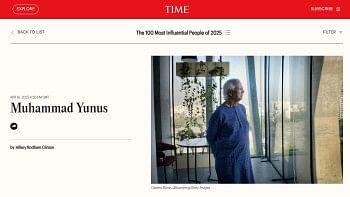EU leaders draw up battle lines for post-Brexit budget
European Union leaders staked out opening positions on Friday for a battle over EU budgets that many conceded they are unlikely to resolve before Britain leaves next year, blowing a hole in Brussels' finances.
At a summit to launch discussion on the size and shape of a seven-year budget package to run from 2021, ex-communist states urged wealthier neighbours to plug a nearly 10 percent annual revenue gap being left by Britain, while the Dutch led a group of small, rich countries refusing to chip in any more to the EU.
Germany and France, the biggest economies and the bloc's driving duo as Britain prepares to leave in March 2019, renewed offers to increase their own contributions, though both set out conditions for that, including new priorities and less waste.
Underlining that a divide between east and west runs deeper than money, French President Emmanuel Macron criticised what he said were poor countries abusing EU funds designed to narrow the gap in living standards after the Cold War to shore up their own popularity while ignoring EU values on civil rights or to undercut Western economies by slashing tax and labour rules.
Noting the history of EU "cohesion" and other funding for poor regions as a tool of economic "convergence", Macron told reporters: "I will reject a European budget which is used to finance divergence, on tax, on labour or on values."
Poland and Hungary, heavyweights among the ex-communist states which joined the EU this century, are run by right-wing governments at daggers drawn with Brussels over their efforts to influence courts, media and other independent institutions.
The European Commission, the executive which will propose a detailed budget in May, has said it will aim to satisfy calls for "conditionality" that will link getting some EU funding to meeting treaty commitments on democratic standards such as properly functioning courts able to settle economic disputes.
But its president, Jean-Claude Juncker, warned on Friday against deepening "the rift between east and west" and some in the poorer nations see complaints about authoritarian tendencies as a convenient excuse to avoid paying in more to Brussels.
At around 140 billion euros ($170 billion) a year, the EU budget represents just about 1 percent of economic output in the bloc or some 2 percent of public spending, but for all that it remains one of the bloodiest subjects of debate for members.
The Commission has suggested that the next package should be increased by about 10 percent but there was little sign on Friday that the governments with cash are willing to pay that.
"When the UK leaves the EU, then that part of the budget should drop out," said Dutch Prime Minister Mark Rutte, who leads a group of hawks including Sweden, Denmark and Austria.
"In any case, we do not want our contribution to rise and we want modernisation," he added, saying that meant reconsidering the EU's major spending on agriculture and regional cohesion in order to do more in defence, research and controlling migration.
On the other side, Czech Prime Minister Andrej Babis said his priorities were "sufficient financing of cohesion policy" a good deal for businesses from the EU's agricultural subsidies.

 For all latest news, follow The Daily Star's Google News channel.
For all latest news, follow The Daily Star's Google News channel. 



Comments